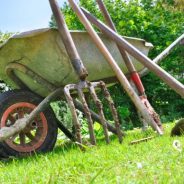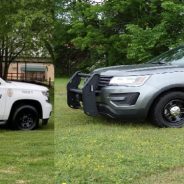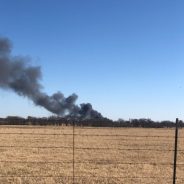Gardening Myths You Can Ignore From Master Gardener David Wall
October 15, 2024 – There are many so-called “rules” about vegetable gardening. Unfortunately, what was gospel yesterday may be ridiculous today! For example, potting soil does NOT need changing several times a year. It’ll last for the growing season before requiring a complete change.
Watering plants on a sunny day WON’T burn plants. Water droplets DON’T act as a magnifying glass. When to water is important. Water early. 6-10AM is best. Watering later risks losing much to evaporation, and late afternoon can lead to large cracks in your tomatoes.
You DON’T need large spaces for your garden. Peppers, cucumbers, and tomatoes grow well in a 5-gallon bucket, and “patio” veggies require even less space. Small gardens, particularly raised-bed gardens, seem to be the new norm, and they work great, especially in urban settings.
Gravel in the bottom of planters/containers does NOT improve drainage but does reduce the amount of nutrient-rich soil. Direct container contact with the soil, however, slows water drainage. Small bricks or other solids under the container keep the container above ground level.
Start-up expenses are NOT nearly what many would have you believe. A biggie here is to start small and grow as you gain experience. Have a trellis for flowers? Put in a tomato or cucumber plant and let it use that trellis!
OK, green pine needles are acidic. So, wait until they turn brown and are dry. Most of the acid will be gone, and they’ll break down faster. Crushed egg shells can take years to break down. Pureeing them lessens the time needed, but bone meal, calcium carbonate or wood ashes work faster works much faster.
Water deeply 48 hours BEFORE (not 24 hours before) a predicted frost/freeze to give the water a chance to get below the first level of soil. With fertilizer, more is NOT better.
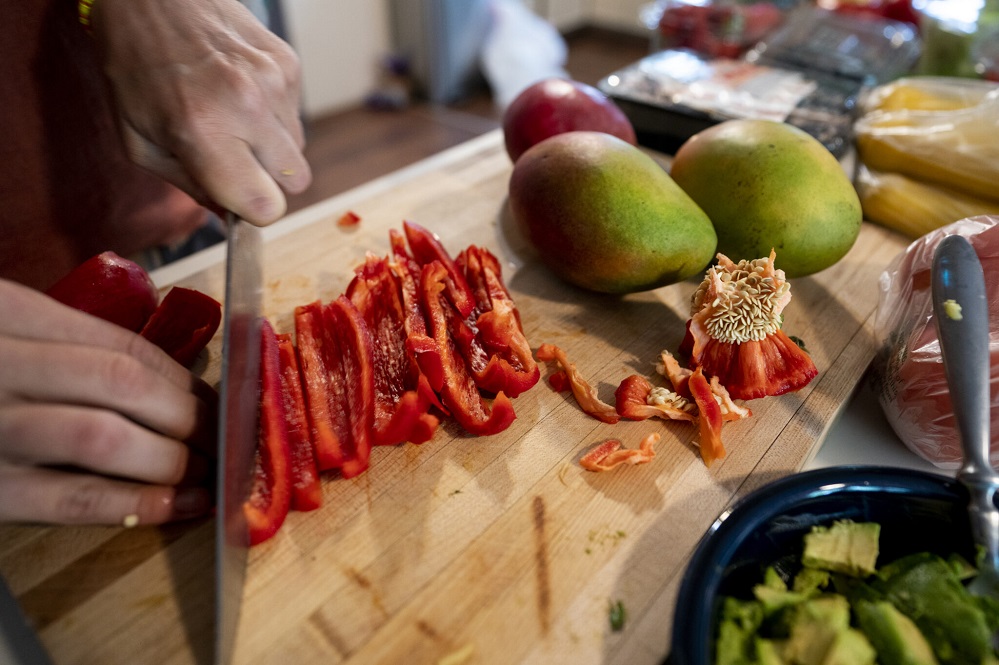
Learn About the Food Drive for Community Chest on this Second Cup Of Coffee
On this episode of KSST’s A Second Cup Of Coffee With John Mark Dempsey, John Mark sat down with guest Keri Osborne. Keri organized a food drive for the Sulphur Springs Community Chest. The food drive is going on now through October 23, 2024. John Mark and Keri chatted about the food drive, where you can donate, what items the Sulphur Springs Community Chest is in most need, and much more. View this episode below and learn how you can give back to your community.

Texas A&M AgriLife Plays Vital Role in Addressing Wild Pigs Issues by Mario Villarino
October 15, 2024 – The Texas A&M AgriLife Extension Service plays a vital role in addressing the issue of wild pigs (also known as feral hogs) in Texas. Wild pigs are a major problem in the state, with an estimated population of over 2.6 million, causing extensive damage to agriculture, natural resources, and property. Recognizing the significant ecological and economic impact of these animals, the Texas A&M AgriLife Extension focuses on education, management, research, and collaboration to help control and mitigate the problems associated with wild pigs.
Ecological and Economic Impact: Wild pigs are considered an invasive species, and their presence leads to a range of negative effects. They root up crops, destroy pastures, eat seeds and small animals, and damage native vegetation. Their behavior disrupts local ecosystems, outcompetes native wildlife, and contributes to soil erosion. From an economic perspective, the damage to agriculture can result in losses of millions of dollars annually for farmers and ranchers. Moreover, wild pigs pose a health risk as they can carry and spread diseases that may affect livestock, pets, and even humans.
Education and Outreach: The Extension Service provides a variety of resources to help Texans understand the behavior, biology, and impacts of wild pigs. Through workshops, online courses, printed guides, and field days, they educate landowners, hunters, and other stakeholders on how to effectively manage and reduce wild pig populations. This educational approach aims to empower individuals with the knowledge needed to implement practical and effective solutions on their land.
Management Strategies: Wild pig management requires a strategic and integrated approach. The Texas A&M AgriLife Extension promotes several control methods, including trapping, hunting, fencing, and habitat modification. Trapping is one of the most effective ways to manage populations, especially when combined with other control measures. The Extension Service provides guidance on how to set up, bait, and monitor traps, as well as tips on hunting techniques and the use of exclusion fencing. They emphasize the importance of continuous effort, as wild pig populations can quickly rebound if control measures are not sustained.
Research and Data Collection: The Extension Service is actively involved in research to understand wild pig behavior, ecology, and the effectiveness of various control methods. Studies on population dynamics, disease transmission, and environmental impacts are essential to developing effective management strategies. The findings from this research are used to improve best practices and provide science-based recommendations to the public.
Partnerships and Collaboration: Effective management of wild pigs requires cooperation beyond individual properties. Texas A&M AgriLife Extension collaborates with landowners, state and federal agencies, non-profit organizations, and other stakeholders to promote coordinated management efforts. By fostering partnerships, they can address the issue of wild pigs on a larger scale, encouraging practices that work across property lines and regions.
Through a combination of education, practical management techniques, research, and collaboration, the Texas A&M AgriLife Extension Service helps Texans tackle the persistent challenge of wild pigs. Their efforts aim to minimize the economic and ecological damage caused by these invasive animals, supporting the sustainability of agriculture and the conservation of natural resources in Texas. For more information on this or any other agricultural topic please contact the Hopkins County Extension Office at 903-885-3443 or email me at [email protected].
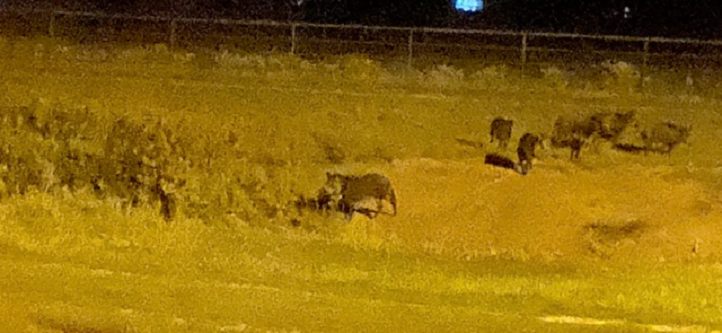
Organized Criminal Group Took Firearms and Tools from Unlocked Vehicles Monday
October 15, 2024 – The Hopkins County Sheriff’s Office says an organized criminal group took items including firearms and tools from several unlocked vehicles Monday morning. The Sheriff’s Office said the burglars are likely the same people who committed crime sprees in other counties.
According to the sheriff’s office, surveillance video shows unknown people as they burglarized vehicles on Monday in the southern part of Hopkins County.
An investigation found that at least four people traveled along FM 1567 stealing from unlocked vehicles.
In a statement the sheriff’s office says: “Additionally, we have discovered that this is likely the same criminal organization that has committed similar crime sprees in multiple counties to the south of Hopkins County.”
Hopkins County Sheriff’s Office chief investigator, Corley Weatherford says the involvement of four people is similar to other car burglaries in Rains, Van Zandt and Wood counties.
A Ford F-150 pickup is believed to have been used in the burglaries, and the burglars wore camo clothing.
Car owners are urged to lock their vehicles and not leave valuable items inside.
Those who have any information are asked to call one of the county sheriff’s offices.
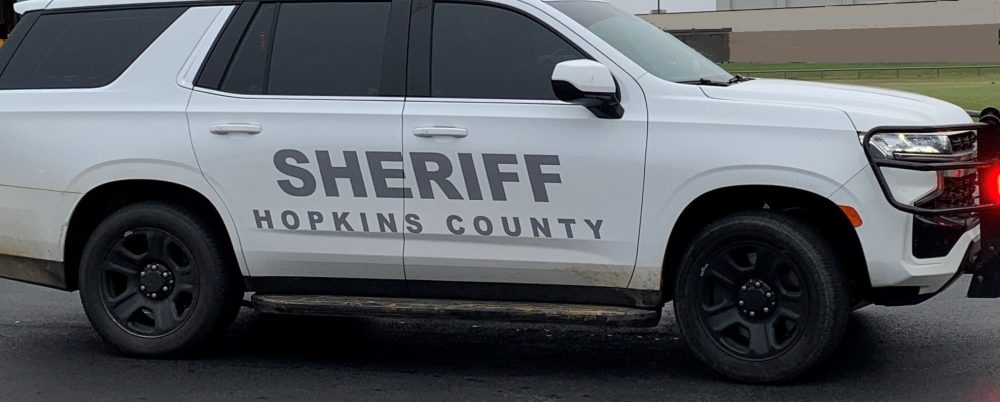
Effective weed Management Involves the use of both Preemergence and Postemergence Herbicides by Mario Villarino
October 15, 2024 – In Texas agriculture, effective weed management often involves the use of both preemergence and postemergence herbicides, each playing a critical role at different stages of weed development. The Texas A&M AgriLife Extension Service offers valuable insights on how and when to apply these herbicides to maximize control and minimize crop competition.
Preemergence Herbicides:
Preemergence herbicides are designed to prevent weeds from emerging by targeting weed seeds as they begin to germinate. These herbicides form a chemical barrier on the soil surface, which kills the seedlings before they can establish themselves. The key to success with preemergence herbicides is timing. They must be applied before the weed seeds begin to germinate, which typically occurs in early spring or fall, depending on the weed species.
In Texas, preemergence herbicides are commonly used in pastures, lawns, and gardens to control annual grassy weeds such as crabgrass and broadleaf weeds like henbit. These herbicides are particularly valuable in crops such as corn, cotton, and soybeans, where early-season weed competition can severely reduce yields. However, preemergence products do not control established weeds, so they are often used as part of a broader weed management strategy.
Examples of preemergence herbicides include Pendimethalin and Prodiamine, which are widely used in Texas for controlling a range of weed species. Proper irrigation or rainfall is often necessary after application to activate the herbicide and ensure it moves into the soil where weed seeds are located.
Postemergence Herbicides:
Postemergence herbicides are applied after weeds have already emerged from the soil and are actively growing. These products target visible weeds and are especially useful when preemergence treatments fail or when managing perennial weeds and later-emerging species. The timing of application is crucial, as postemergence herbicides are most effective when weeds are small and actively growing. Weeds that are large or stressed due to drought or temperature extremes may be more difficult to control.
There are two main types of postemergence herbicides: selective and non-selective. Selective herbicides, such as 2,4-D, target specific weed species without harming desirable plants, while non-selective herbicides like **glyphosate** kill most plants they contact. In Texas, postemergence herbicides are often used in conjunction with preemergence products to achieve season-long weed control. By combining both preemergence and postemergence herbicides, Texas producers can effectively manage a wide range of weed species, ensuring healthier crops and higher yields.
For more information on this or any other agricultural topic please contact the Hopkins County Extension Office at 903-885-3443 or email me at [email protected].
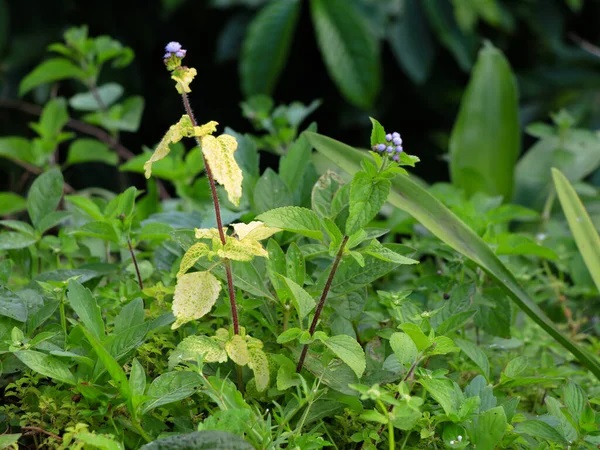
Hopkins County Genealogical Society to hold Their Annual City Cemetery Walk November 3rd
October 15, 2024 – Same the date! Sunday, November 3, 2024, 2:00pm to 4:00pm… the Hopkins County Genealogical Society will hold their annual City Cemetery Walk… “If Headstones Could Talk…” The Hopkins County Genealogical Society will honor some of the residents of City Cemetery who served our country in their day by portraying then in costume and telling stories in anticipation of Veterans Day 2024. Cost is a $10 donation. Reserve your spot by calling 903-885-8523, or in person at 611 North Davis Street.

Texas DPS Apprehends 22 Special Interest Aliens
October 15, 2024 – At least 1.7 million special interest aliens have entered the country under the Biden-Harris administration.
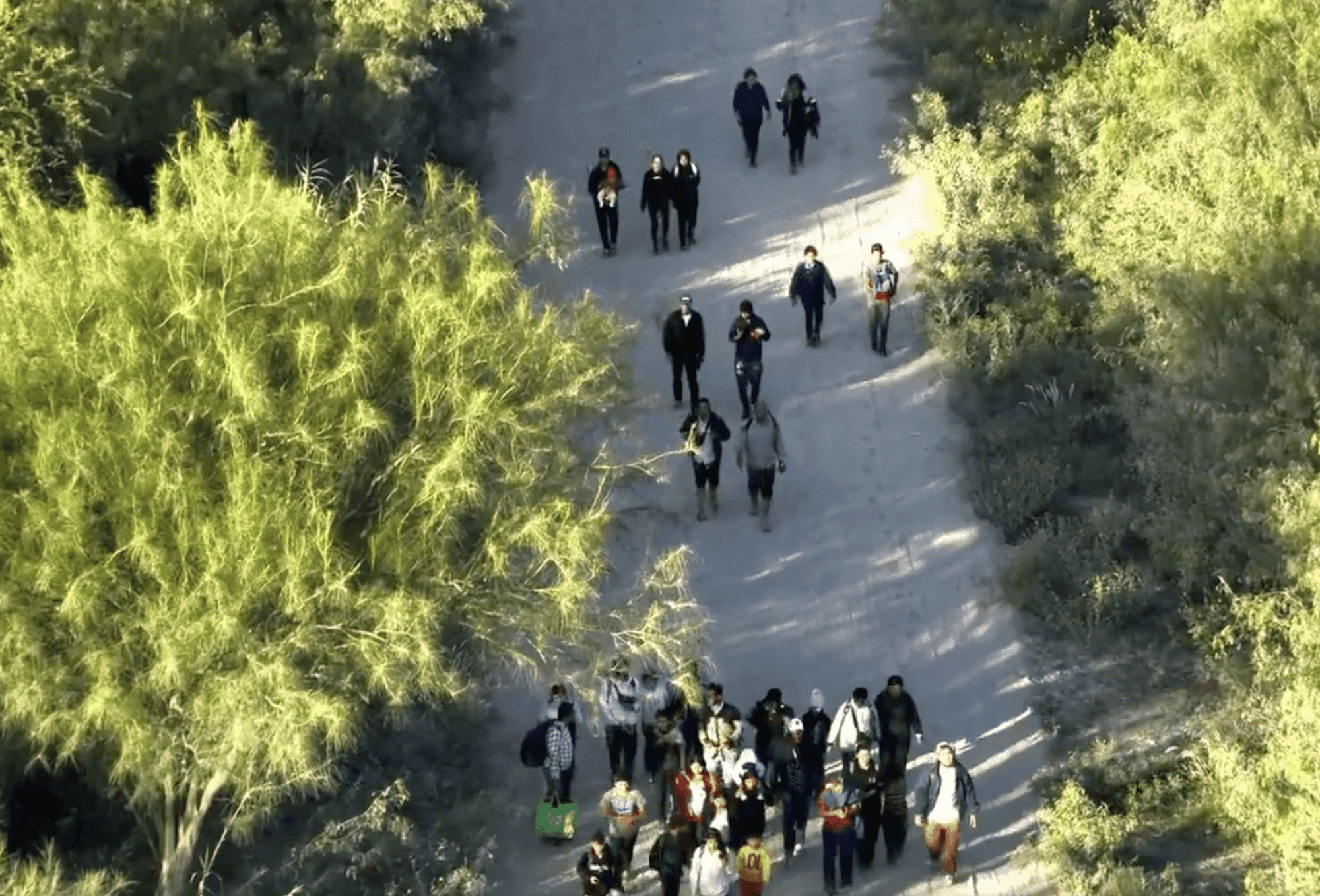
Photo courtesy of DPS drone footage.
Texas Department of Public Safety officers apprehended a large group of illegal border crossers, including 23 unaccompanied children and 22 special interest aliens.
The groups crossed onto private property in Maverick County, as reported by Lt. Chris Olivarez, a spokesman for DPS.
Olivarez posted that of the 23 unaccompanied children, 16 were boys, and seven were girls. The 22 special interest aliens were from Egypt and Turkey.
A special interest alien is someone who is identified by the U.S. Department of Homeland Security as a potential national security threat due to analysis of their travel patterns and country of origin.
“SIAs are not regarded as terrorists but, because they arrive as almost complete strangers from nations where avowed anti-U.S. terrorist groups are prevalent, homeland security protocols dating to a 2004 CBP Memorandum and still largely in effect call for SIAs to be tagged and detained until they can go through extra security screening,” wrote Todd Bensman, Senior Fellow at the Center for Immigration Studies.
In September, 27 special interest aliens crossed into Maverick County from Afghanistan, Pakistan, Iran, Egypt, and India. Last week, 14 special interest aliens from Iran, Egypt, and the Democratic Republic of the Congo were apprehended.
A U.S. House Judiciary Committee report estimates that at least 1.7 million special interest aliens have entered the country under the Biden-Harris administration.
This article originally appeared here.
Neighboring County Institutes Burn Ban
October 15, 2024 – Hopkins County has yet to issue a burn ban this fall, but our neighboring county to the east issued one this week. Residents of Franklin County are now prohibited from outdoor burning.
In Texas, local governments are empowered to take action on the behalf of those they serve. When drought conditions exist, a burn ban can be put in place by a county judge or county commissioners court prohibiting or restricting outdoor burning for public safety.
A burn ban means no outdoor burning is allowed, except in an enclosure that contains all flames and/or sparks. Non-commercial cooking, such as backyard cookouts and barbeques, are still allowed. Any outdoor welding and/or other “hot work” must be performed in accordance with fire code requirements.
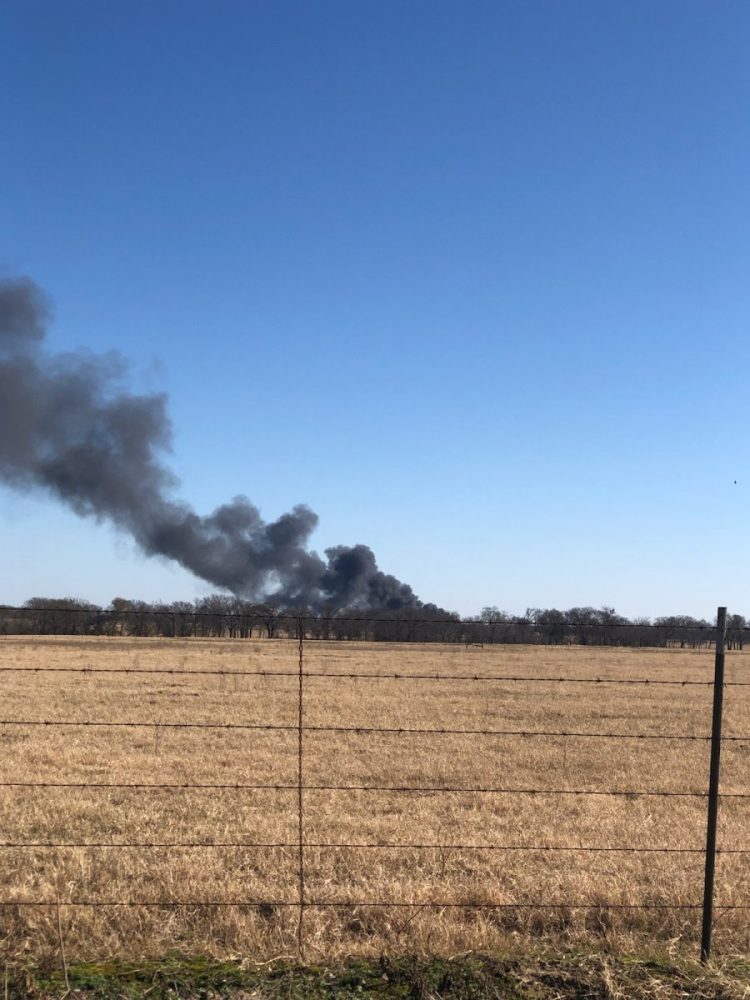
As of this posting, there is no significant precipitation in the 10 day forecast.
Learn a Little About Medicare and Enrollment in this Episode of A Second Cup Of Coffee
On this episode of KSST’s A Second Cup Of Coffee With John Mark Dempsey, John Mark had a Skype chat with Sulphur Springs Independent Insurance Advisor Gillan Boyer. In this conversation, John Mark and Gillan cover such topics as what you should do when preparing to change your Medicare plan, how much your Social Security is going to go up next year, what you should do with commercials advertising renewing or changing Medicare plans, and so much more. Check out the video below.

St. Philip’s Episcopal Church Invites the Community to Their “Blessing of the Animals” October 19th
October 14, 2024 – St. Philip’s Episcopal Church, located at 1206 College Street, invites the community to bring their pets to the Church October 19, 2024, for their “Blessing of the Animals.” The event will be held from 1:00pm to 2:30pm. They invite you to bring your dogs, cats, longhorns… any pets to this event. “All are welcome.” There will also be a petting zoo of farm animals at the event. You can also meet the fun-loving dog, Jerry, with Hearts of Life Animal Rescue. Bring your favorite critters out to this event and have a good time!



